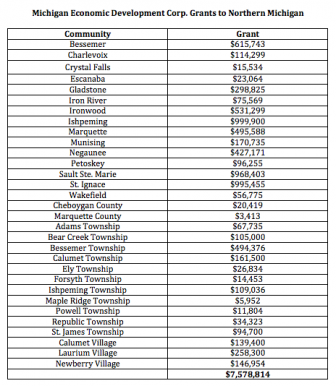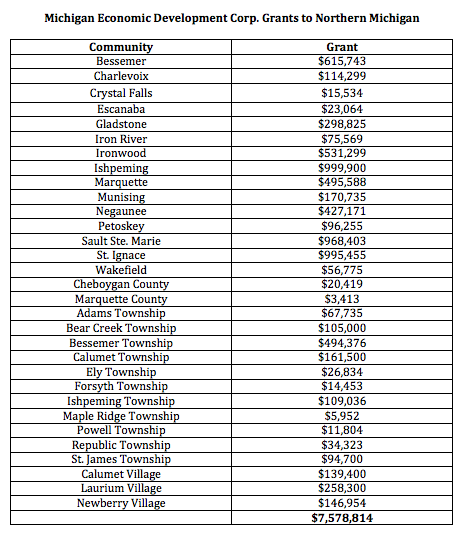By IAN K. KULLGREN 
As winter approaches, the Michigan Economic Development Corp.(MEDC) is pouring an additional $1.6 million into the effort to assist communities still reeling from damages sustained during last year’s deep freeze, bringing the total to $7.6 million.
The funds will partially reimburse more than 30 communities in the northern Lower and Upper peninsulas for repairing damaged roads and water mains, and to wrap up construction before the cold weather sets in.
“It’s really the first time we’ve seen that scale,” said Lisa Pung, manager of the MEDC community assistance team. “There are some projects that are being addressed now and some that will have to extend into the winter and spring seasons.”
Marquette, for example, had 700 water main breaks last year at a cost of $1.7 million. The city received nearly $500,000 to mitigate infrastructure costs, in addition to $3,400 to Marquette County.
Workers are now monitoring ground freezes to try and anticipate the severity of this coming winter.
City workers spent 12 hours a day thawing water mains last winter, public works and utilities director Curt Goodman said. In addition to damage to pipes and roads, the city lost an estimated 75 million gallons of water by requiring customers to keep faucets running to prevent more ruptures.
Other recipients include Petoskey ($96,255), Cheboygan County ($20,419), Bear Creek Township ($105,000), ST. James Township ($94,700) and Charlevoix ($114,299).
Among the hardest-hit cities, Sault Ste. Marie, St. Ignace and Ishpeming each received nearly $1 million to pay for their infrastructure repairs. In some cases, cities tore up entire streets to gain access to broken mains, Pung said.
St. Ignace received nearly $1 million, although the funding came through too late for the city to complete some of the major repairs needed, City Manager Les Therrian said.
The primary water main that services the city’s business district is still broken, and workers now must wait until spring to make repairs.
“Our biggest issue we have right now is keeping those people with water if this winter turns out the same,” Therrian said.
The MEDC grants come mostly from federal assistance to the state from the U.S. Department of Housing and Urban Development.
Goodman said Marquette is exploring the possibility of hiring more outside contractors to make themselves eligible for more federal emergency money, which doesn’t cover work by city staff.
“If we would have hired more outside contractors, we would have been reimbursed more,” Goodman said.
